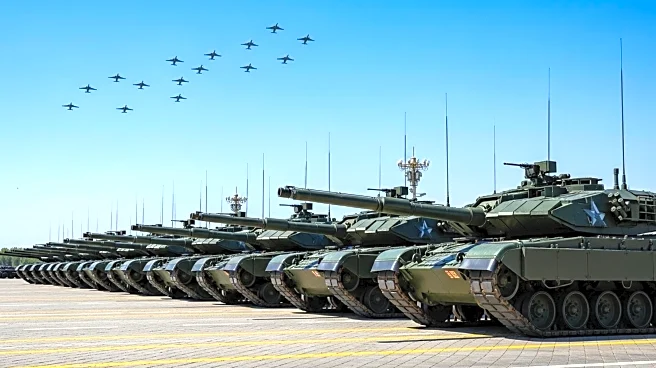What is the story about?
What's Happening?
China is commemorating the 80th anniversary of the end of World War II with a military parade showcasing its strength. The event highlights China's rise from devastation during the war, with millions of lives lost. The parade, attended by leaders such as Russia's Vladimir Putin and North Korea's Kim Jong Un, aims to bolster domestic support for the Communist Party and President Xi Jinping. The commemoration includes spruced-up museums and new war movies, emphasizing China's role in the war and its subsequent rise as a global power.
Why It's Important?
The parade serves as a demonstration of China's military capabilities and its position as a global power. Domestically, it reinforces the Communist Party's narrative of national rejuvenation and strength under President Xi Jinping. Internationally, it signals China's assertiveness in the global arena, positioning itself as an alternative to the American-dominated postwar era. The event reflects China's growing influence and its strategic partnerships, particularly with Russia, as it seeks to reshape global alliances.
What's Next?
China's military parade is likely to influence regional dynamics, particularly in the South China Sea, where tensions with neighbors like Taiwan and the Philippines persist. The event may prompt reactions from the United States and its allies, as they navigate China's growing assertiveness. China's emphasis on its role in the postwar global order suggests continued efforts to expand its influence and challenge established norms.
Beyond the Headlines
The parade underscores China's historical narrative and its use of wartime history to legitimize its current leadership. The focus on national strength and resilience reflects broader themes of nationalism and identity. China's portrayal as a defender of the global order contrasts with its assertive actions in regional disputes, highlighting the complexity of its international strategy.

















